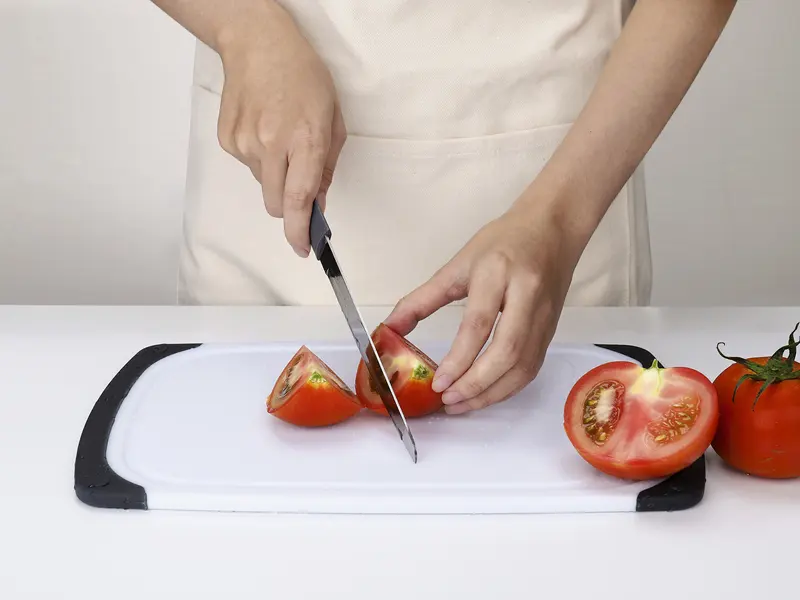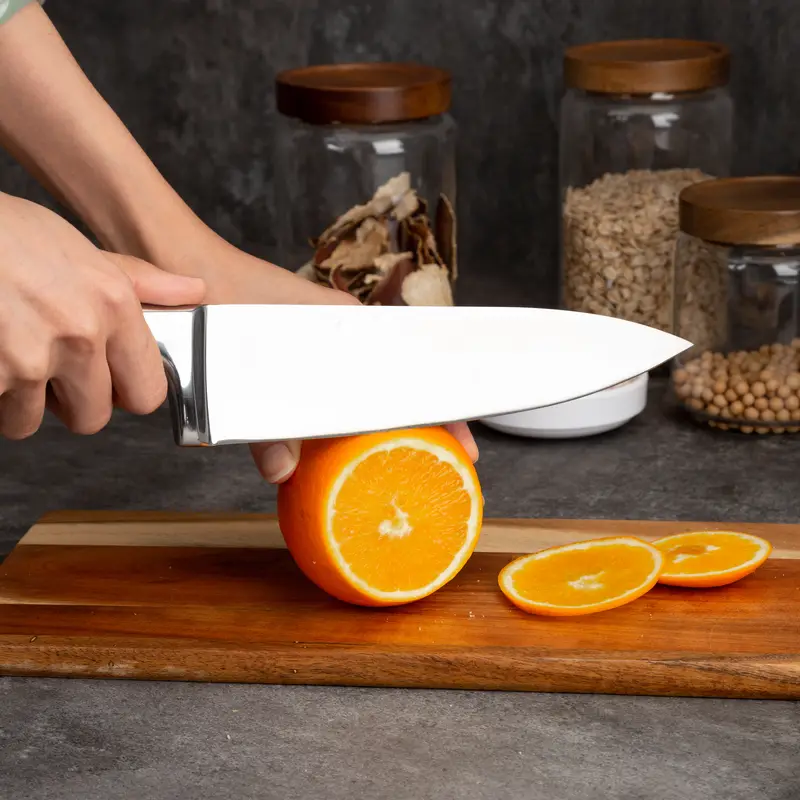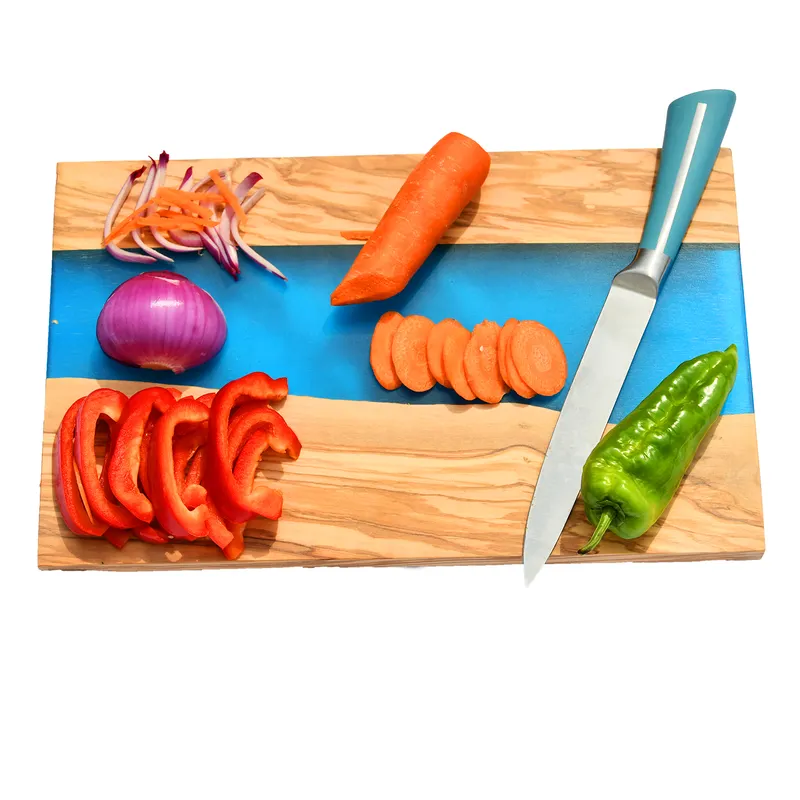Proper care and maintenance are crucial for keeping your kitchen knives in optimal condition. Here are some essential tips to ensure the longevity and performance of your knives:
1. Handwashing:
- Always handwash your knives with mild dish soap and warm water.
- Avoid putting knives in the dishwasher as the high heat, strong detergents, and intense water pressure can damage the blades and handles.
2. Proper Cutting Surfaces:
- Use cutting boards made of wood, bamboo, or soft plastic to avoid dulling the knife blades.
- Avoid cutting on hard surfaces like glass, ceramic, or stone, as they can damage the edge.
3. Storage:
- Store knives in a knife block, magnetic strip, or on a magnetic wall mount to protect the blades and ensure safety.
- Use blade guards if storing knives in a drawer to prevent damage and accidents.
4. Honing:
- Regularly use a honing rod or honing steel to maintain the edge of your knives between sharpenings.
- Hold the honing rod at a slight angle and gently swipe the blade across the rod from base to tip.
5. Sharpening:
- Sharpen your knives when they start to feel dull. The frequency depends on usage.
- Use a whetstone, knife sharpener, or send them to a professional sharpening service.
6. Proper Technique:
- Use the appropriate cutting technique for each task to avoid unnecessary stress on the blade.
- Avoid twisting the blade while cutting, especially with harder foods.
7. Dry Thoroughly:
- After washing, dry your knives immediately with a clean, dry cloth to prevent corrosion.
- Ensure that no moisture is left on the blade or in the handle.
8. Avoid Bones and Frozen Foods:
- Avoid using kitchen knives to cut through bones or frozen foods, as this can damage the edge.
- Use a cleaver or a specialized bone-cutting knife for such tasks.
9. Regular Inspection:
- Periodically inspect your knives for any signs of damage, such as chips, cracks, or loose handles.
- Address any issues promptly to prevent further damage.
10. Proper Use:
- Use each knife for its intended purpose to prevent unnecessary wear and damage.
- Avoid using knives to pry open containers or perform tasks they are not designed for.
11. Safe Handling:
- Handle knives with care, especially when handing them to others. Always offer the handle first.
- Use a proper cutting technique and a stable cutting surface to prevent accidents.
12. Regular Cleaning:
- Clean your knives immediately after use to prevent food particles from drying on the blade.
- Use a soft sponge or cloth to avoid scratching the blade.
13. Oil the Blades:
- For carbon steel knives, apply a thin coat of mineral oil to prevent rust.
- Wipe off excess oil before using the knife.
14. Avoid Dish Enzyme Detergents:
- Some dish detergents may contain enzymes that can be harsh on knife blades. Choose mild dish soaps.
15. Use a Knife Block:
- A knife block with individual slots helps protect the blades from contacting each other, preventing nicks and dulling.
16. Professional Maintenance:
- If you’re not confident in sharpening your knives, consider professional sharpening services for the best results.
17. Rotate Your Knives:
- Rotate the use of your knives to ensure even wear. This helps prevent some knives from becoming excessively worn compared to others.
By following these care and maintenance tips, you’ll ensure that your kitchen knives remain sharp, safe, and ready for efficient food preparation.



